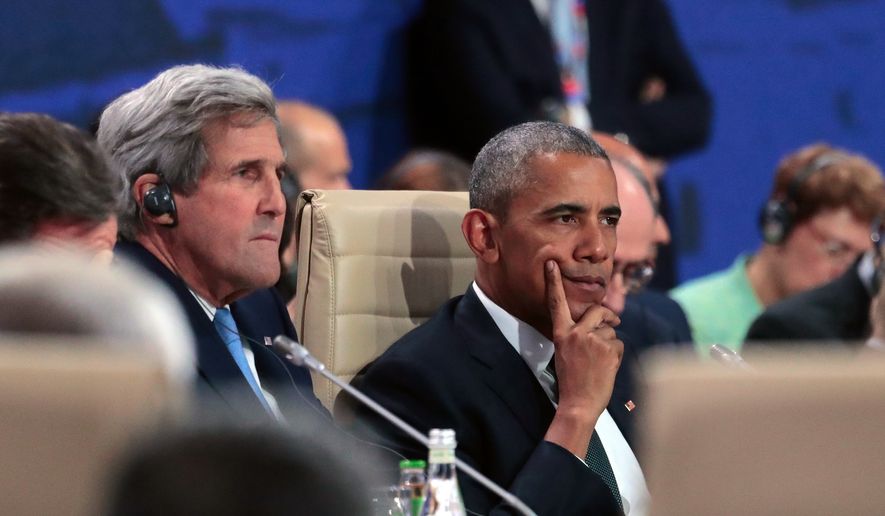China and Russia both issued angry responses to the news Friday that the Obama administration has reached an agreement with South Korea to install a highly advanced missile defense system based in its East Asian ally.
Washington and Seoul announced Friday morning a long-delayed agreement to deploy the “Terminal High-Altitude Area Defense” — THAAD — system in response to the growing nuclear threat from North Korea. One battery of the THAAD deployment, to be under U.S. military operational control, could be in place by the end of the year at a still-to-be-announced location.
China and Russia have long been opposed to the THAAD deployment on the Korean peninsula, which they fear could undercut their own deterrent capacity by potentially shooting down their missiles. The Chinese Foreign Ministry said in a statement issued almost immediately after the deployment was announced that it was “strongly dissatisfied and firmly opposed” to the idea, warning it will only exacerbate tensions in the region and upset the “strategic balance,” according to an account in the Xinhua official news service.
The Russian Foreign Ministry expressed “very serious concern” over the news, which it said was made “despite strong and persistent opposition of the Russian side and a number of other countries.” Moscow in its statement warned of unspecified “dangerous consequences” if the deployment went forward.
But U.S. and South Korean defense officials in Seoul Friday insisted THAAD was only meant to defend against attacks from North Korea, not any other country in the region.
Lt. Gen. Thomas Vandal, commander of the U.S. Eighth Army stationed in South Korea, told reporters in Seoul Friday that pursuit of nuclear weapons and long-range ballistic missiles by the regime of North Korean leader Kim Jong Un made it imperative that U.S. and South Korean forces be able to protect themselves, and THAAD was vital to that mission.
The decision was welcomed by Japan, which is well within range of the North’s missiles, and by some lawmakers on Capitol HIll.
“North Korea’s provocations and its refusal to engage in credible negotiations on denuclearization compel the [U.S. and South Korea] to take defensive measures necessary to assure that the security of the Korean people can be safeguarded,” said Maryland Sen. Ben Cardin, the ranking Democrat on the Senate Foreign Relations Committee.
South Korea has been ambivalent in the past about accepting the anti-missile system, fearing it could be seen as a provocation and damage ties with China, the country’s biggest trading partner. The announcement Friday was made in a nationally televised news conference.
• David R. Sands can be reached at dsands@washingtontimes.com.




Please read our comment policy before commenting.